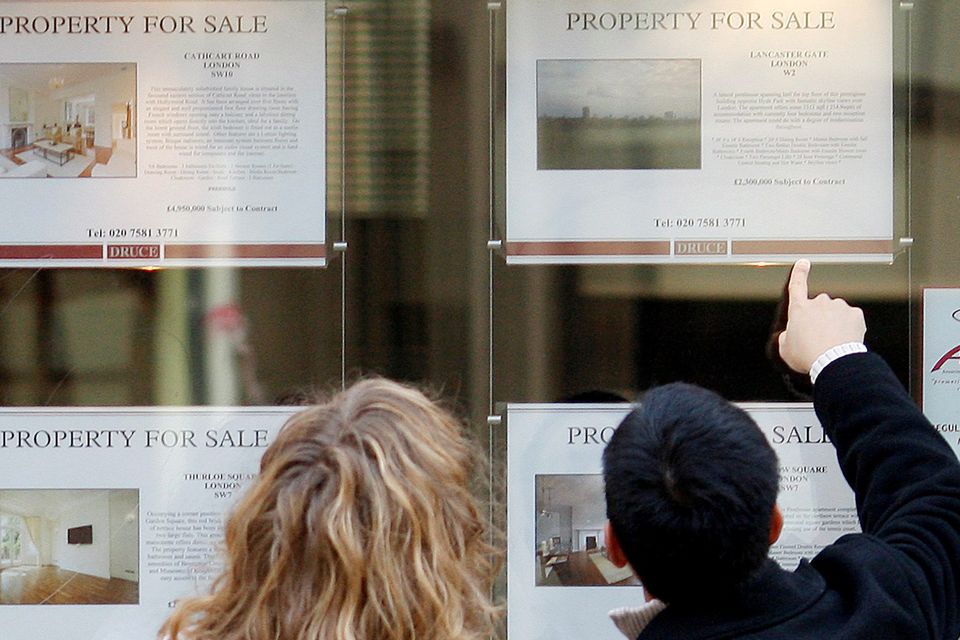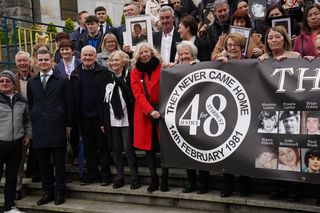Trapped and abandoned - the negative-equity generation still suffering the brunt of the bust
A typical boom-buyer couple now needs a larger home as the children that now make up the family cannot be accommodated in a two-bed apartment or a small house Photo: Reuters
It seemed like a great idea at the time. Countless couples bought apartments or small houses as starter homes during the boom.
They paid top dollar, convinced that a failure to buy would leave them behind in a run-away housing market.
But those who bought in the early 2000s did not have to wait long before they became wearily familiar with the phrase 'negative equity'.
Ten years later, negative-equity generation couples have children. Both parents may be working, forcing them to fork out for the most expensive childcare in Europe.
These couples are likely to have suffered pay cuts during the savage downturn in 2008. And the negative-equity generation is stretched to its financial limits by income tax hikes, the introduction of the universal social charge and property tax.
A typical boom-buyer couple now needs a larger home as the children that now make up the family cannot be accommodated in a two-bed apartment or a small house.
But the family is trapped.
The boom-era apartment is now rented out. The family are now accidental landlords. A house is now being rented near schools, but ever-rising rental costs for the house are a major strain.
Next year was pencilled in for a house-purchase project.
But the Central Bank and Government have frustrated the buying plans of the trapped family.
The family are likely to find themselves heavily outbid by financially turbo-charged first-time buyers.
For the new buyers, a 10pc deposit will be sufficient from next year, after changes to Central Bank lending rules.
The trapped couple will need a 20pc deposit.
And if new buyers and second-time buyers are both competing for newly built homes, the first-timers will be able to avail of the Government's help-to-buy scheme.
This effectively means new buyers can acquire a newly-built property with a deposit as little as 5pc.
What this means is that for a €300,000 property, a first-time buyer will only need a deposit of as little as €15,000 to buy a new build. But a mover will need a deposit of €60,000 for the same property - four times more.
Accumulating a deposit of this size becomes mission impossible.
This is especially the case due to the bust-era's punishing tax and charges. The couple are paying property tax and other charges on the apartment they own, high rental costs for the family accommodation, childcare costs and the other income-sapping outgoings.
This means couples with kids will be at a huge disadvantage to new buyers.
Such a scenario becomes more egregious if the new buyers have parents who can afford to gift them the deposit.
The 20pc deposit rule does not apply to those who are in negative equity.
The Economic and Social Research Institute reckons fewer than 100,000 mortgage holders are now in negative equity, down by a third.
But to move house, a family in negative equity would need to get their lender to give them what is know as a 'negative equity mortgage'.
This involves taking some of the negative equity onto a new mortgage. Just 300 of these loans are given out a year, and are restricted to higher earners.
No wonder the negative equity generation feels it has been sold out by the Government and the Central Bank. The bitter lesson is that there is no relief for boom buyers - whether they are still in negative equity or emerging out of it.
Join the Irish Independent WhatsApp channel
Stay up to date with all the latest news















